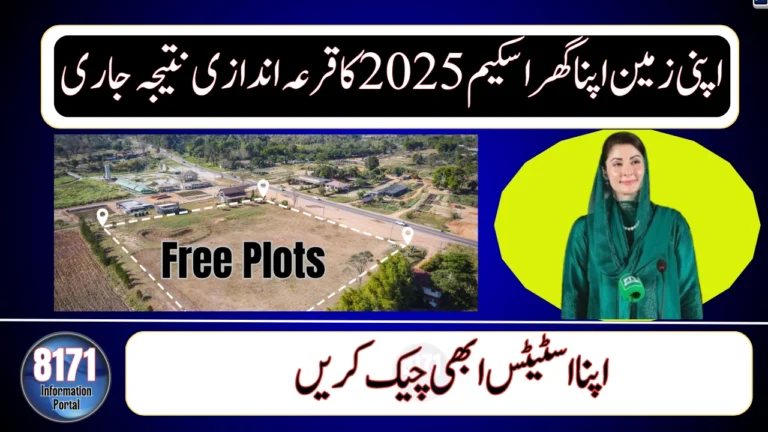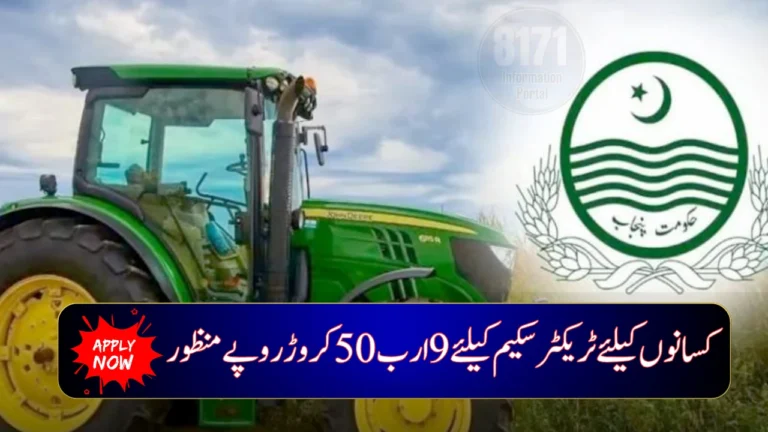Punjab’s agriculture is entering a new era with the Sarsabz Punjab Scheme 2025, announced under the Khushhal Kashtkaar Initiative. The November update focuses on solar-powered tube wells, paved watercourses, and advanced farm machinery — helping farmers cut costs, save water, and boost yields.
This green initiative aims to make Punjab a model of climate-smart, sustainable farming by reducing fuel dependency and promoting eco-friendly technologies.

🌱 What Is the Sarsabz Punjab Scheme?
The Sarsabz Punjab Scheme (meaning “Green Punjab”) is a flagship project by the Government of Punjab to modernize agriculture and empower local farmers.
Its core goals include:
-
Improving water efficiency through better irrigation
-
Lowering energy and input costs
-
Encouraging renewable energy use
-
Supporting small and medium-scale farmers
⚙️ Key Components of the Scheme
1. Paved Watercourses
Over 1,200 watercourses are being upgraded with a Rs. 10 billion budget, cutting water loss by nearly 40%.
➡️ Result: Efficient irrigation, reduced wastage, and higher crop yields.
2. Modern Farm Machinery
Farmers will access:
-
Subsidized tractors and harvesters
-
Precision seeders and sprayers
-
Automation tools for small farms
➡️ Less manual work, more efficiency, and better soil management.
3. Solar Tube Wells
One of the most impactful 2025 updates — conversion of diesel-powered wells to solar energy systems.
➡️ Reduces irrigation costs by up to 70% and supports the Punjab Clean Energy Plan.
4. Improved Seeds and Research
Focus on local seed innovation to cut imports and ensure self-sufficiency.
➡️ Disease-resistant, high-yield seeds available at subsidized rates.
📊 Key Benefits for Farmers
| Benefit | Description |
|---|---|
| Reduced Costs | Solar energy cuts diesel and electricity bills. |
| More Crops | Efficient irrigation increases per-acre yield. |
| Eco-Friendly | Supports clean, renewable agriculture. |
| Smart Farming | Digital tools simplify farm management. |
| Government Support | Subsidies make modern farming affordable. |
🧾 Eligibility & Application Process
Eligibility:
-
Must be a registered farmer in Punjab
-
Verified land ownership or cultivation record
-
Priority for small and medium landholders
How to Apply (Expected Process):
-
Visit the Punjab Agriculture Department portal
-
Enter CNIC, contact, and land details
-
Upload required documents
-
Await verification from district agriculture officers
-
Receive confirmation and subsidy details via SMS
📰 November 2025 Highlights
-
1,200+ watercourses nearing completion
-
Solar tube well pilot projects successful in South Punjab
-
Tax relief expected on imported machinery
-
Expansion of Punjab Seed Research Centers
-
Linked with Green Tractor Subsidy Program 2025
These steps align with Punjab’s long-term agriculture digitalization plan, promoting green growth and rural stability.
🚜 Challenges Ahead
Despite progress, challenges include:
-
Limited awareness among rural farmers
-
Maintenance of solar systems
-
Delays in subsidy disbursement
Yet, experts say Sarsabz Punjab marks the turning point for Pakistan’s agricultural economy.
🌍 Conclusion
The Sarsabz Punjab Scheme 2025 is more than an agricultural program — it’s a green revolution reshaping Punjab’s future.
By merging solar power, research innovation, and farmer-friendly policies, the province is paving the way for sustainable, profitable, and eco-smart farming.
❓ FAQs – Sarsabz Punjab Scheme 2025
Q1: What is the goal of the Sarsabz Punjab Scheme?
To promote climate-smart agriculture, reduce water and energy waste, and support farmers through technology and subsidies.
Q2: Who can apply for this scheme?
Registered farmers in Punjab with verified land records and small or medium farm size.
Q3: What’s new in the November 2025 update?
Expansion of solar tube wells, completion of paved watercourses, and new tax relief on machinery.
Q4: How much subsidy is available for solar tube wells?
Farmers can get up to 60–70% cost relief depending on their category and area.
Q5: Which districts are included in Phase 1?
Primarily South Punjab regions such as Multan, Bahawalpur, and Dera Ghazi Khan.
Q6: Can small farmers apply individually?
Yes, small farmers with CNIC and verified land details can apply directly through the online portal.
Q7: When will registration open officially?
Registration is expected to open in late November 2025 after pilot verification.






